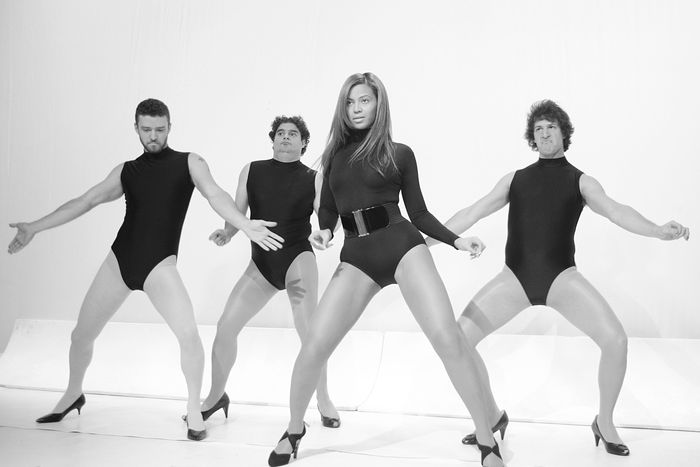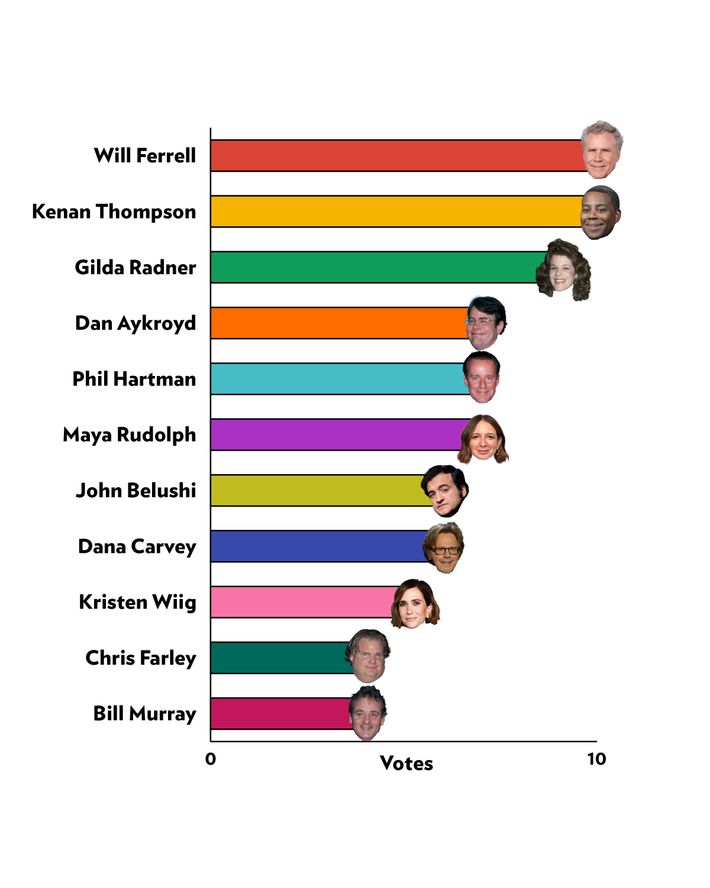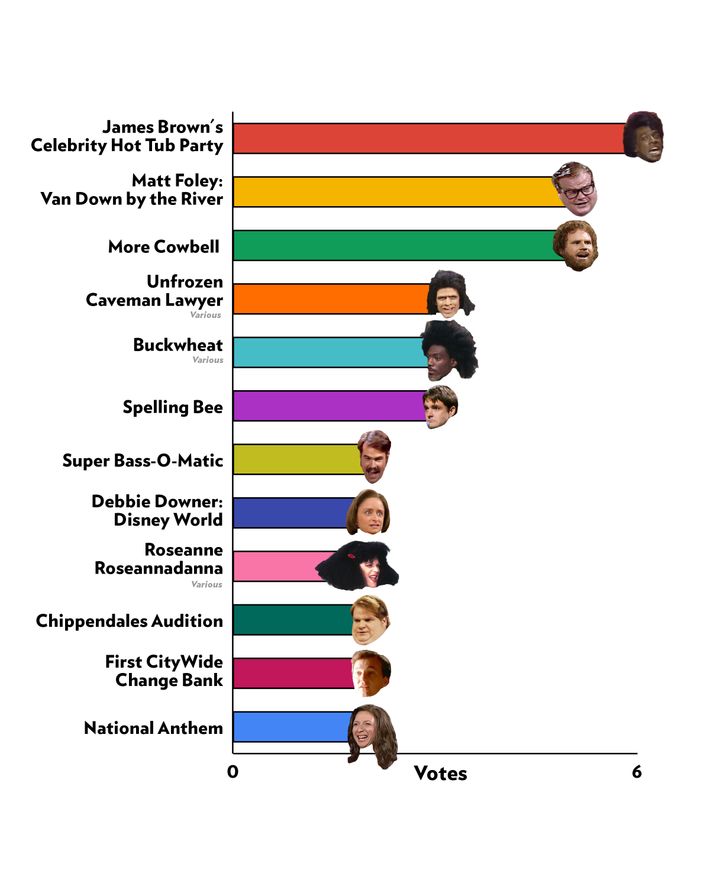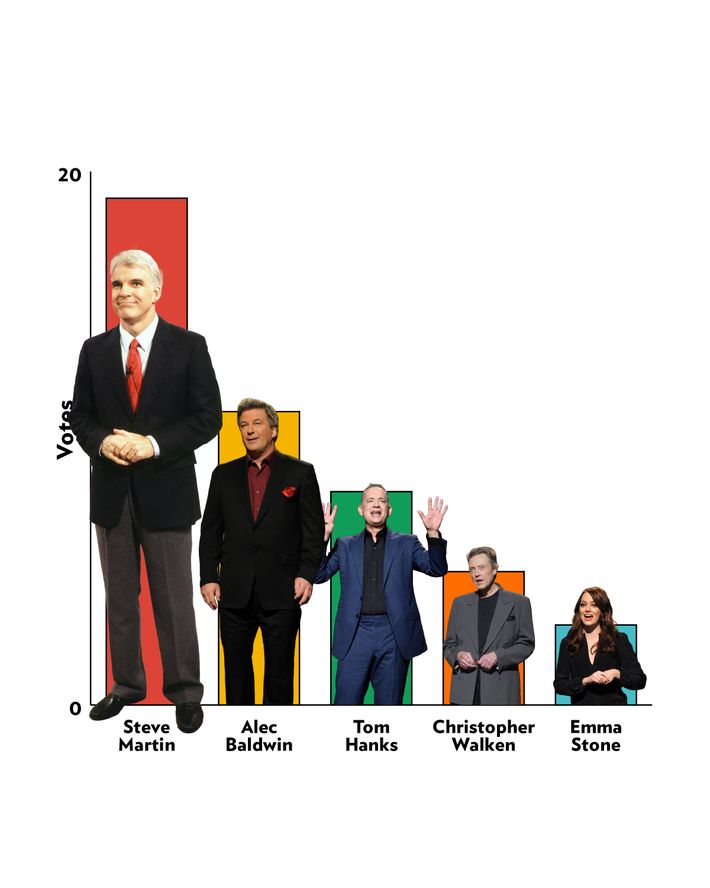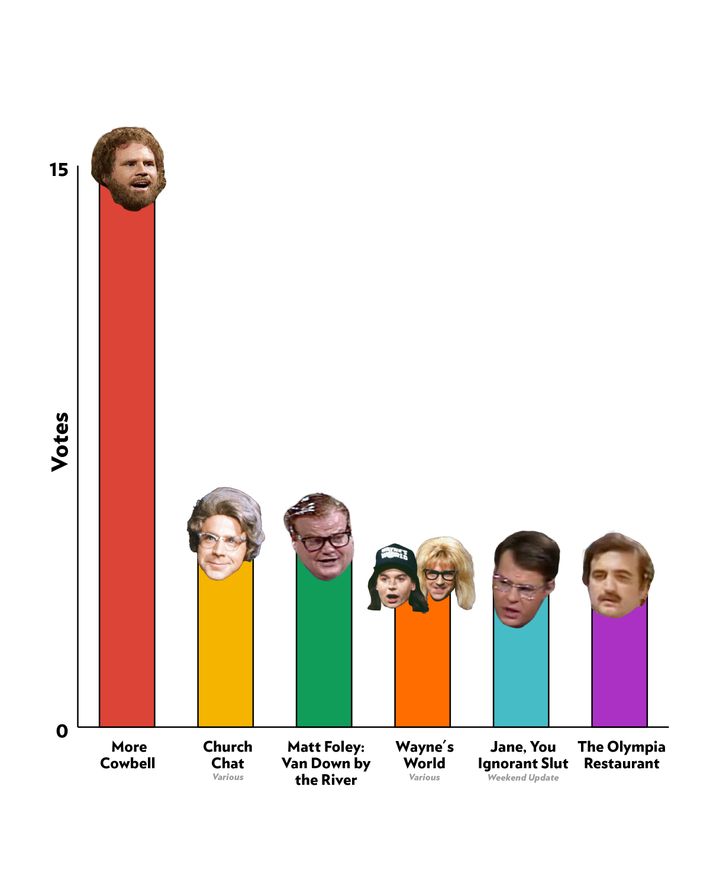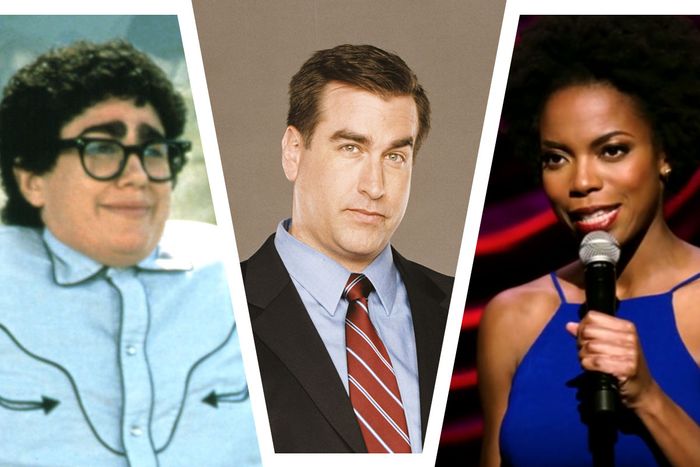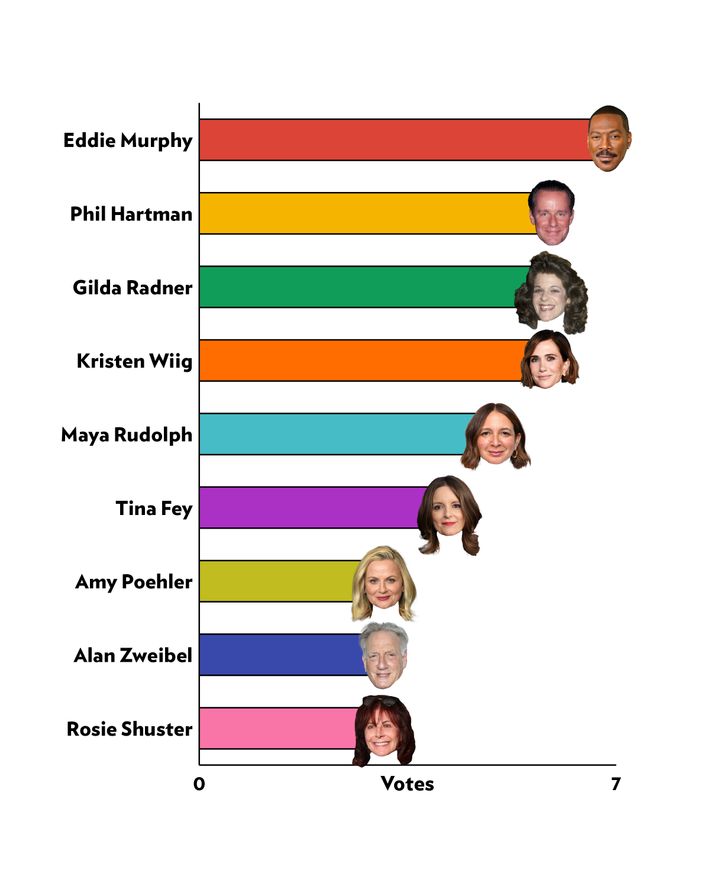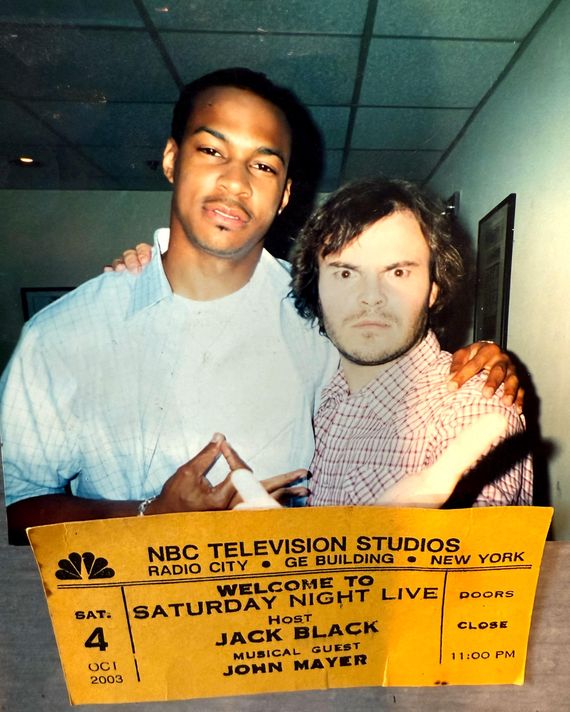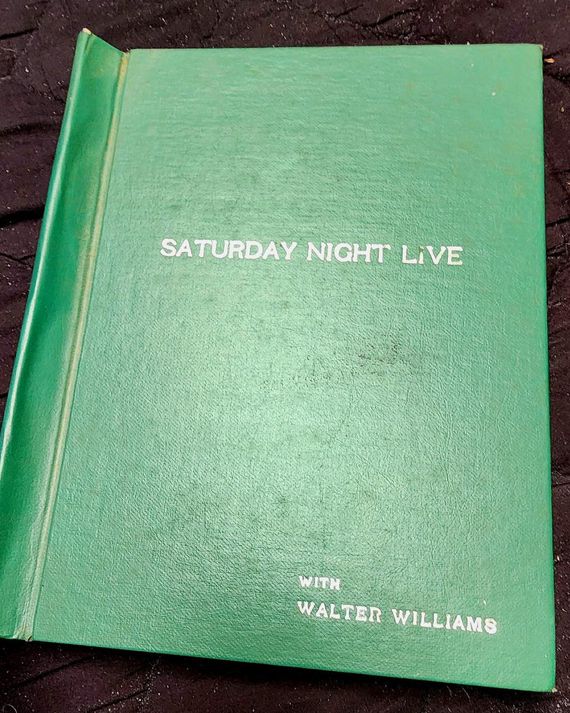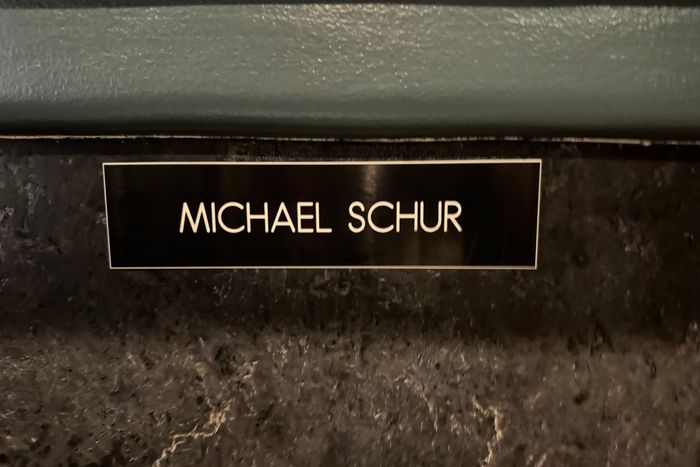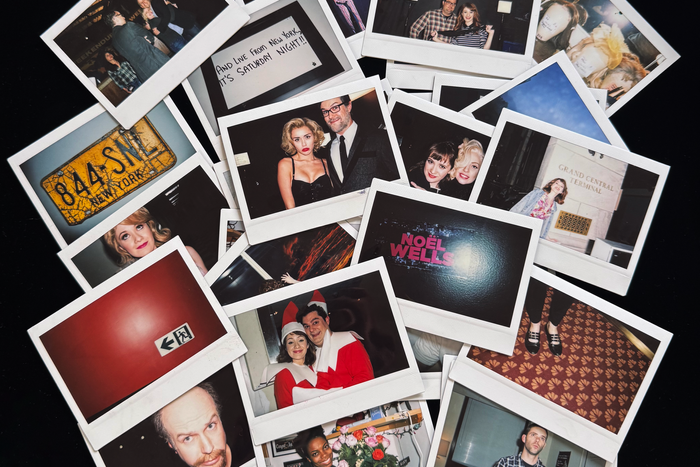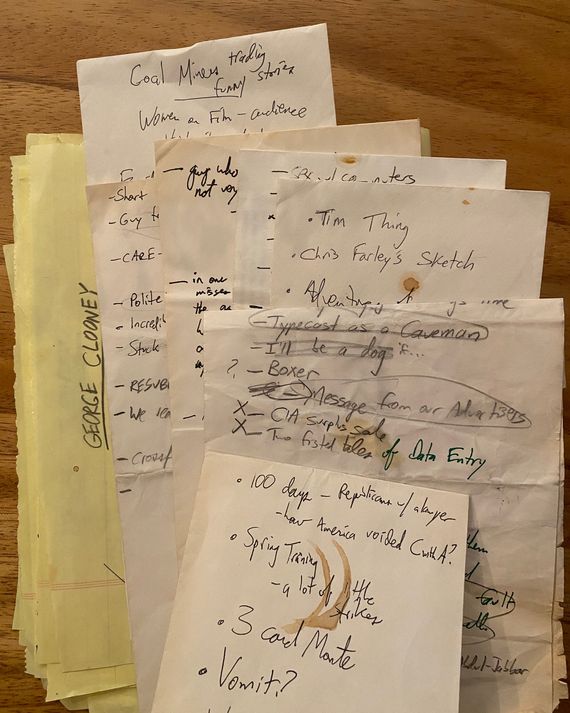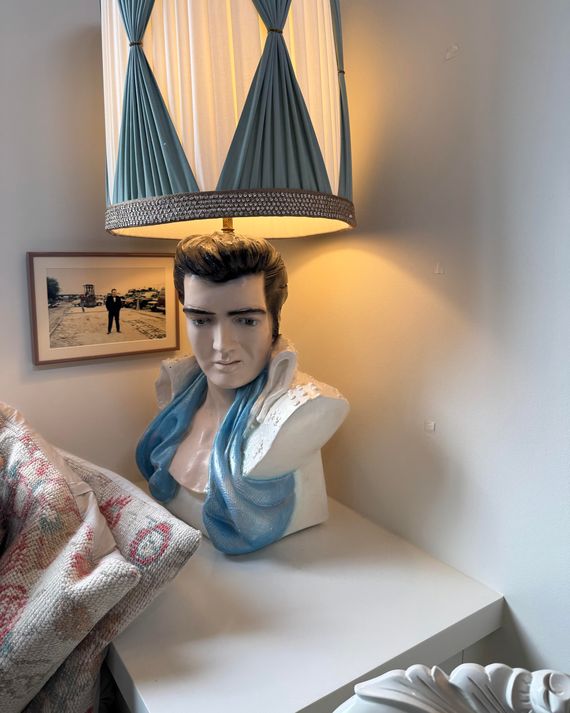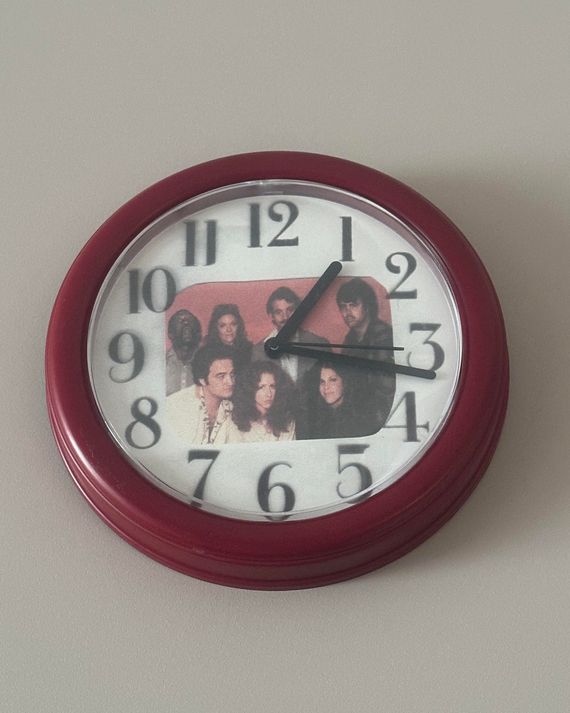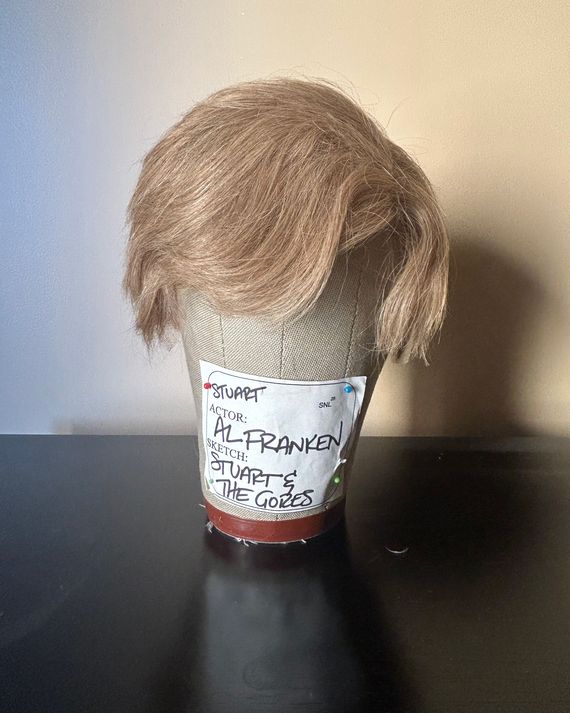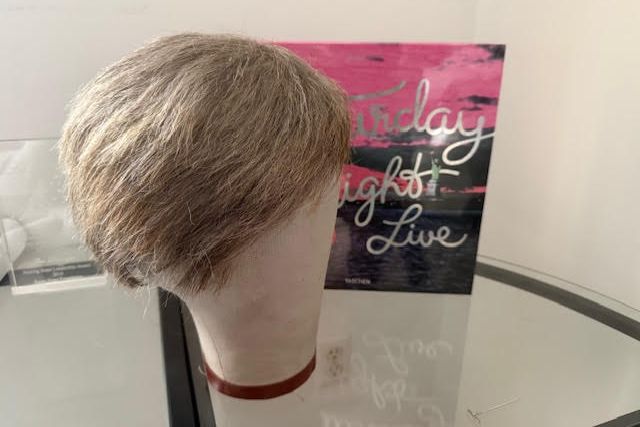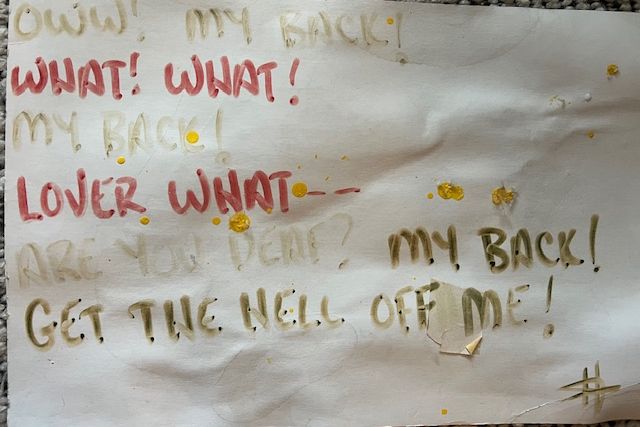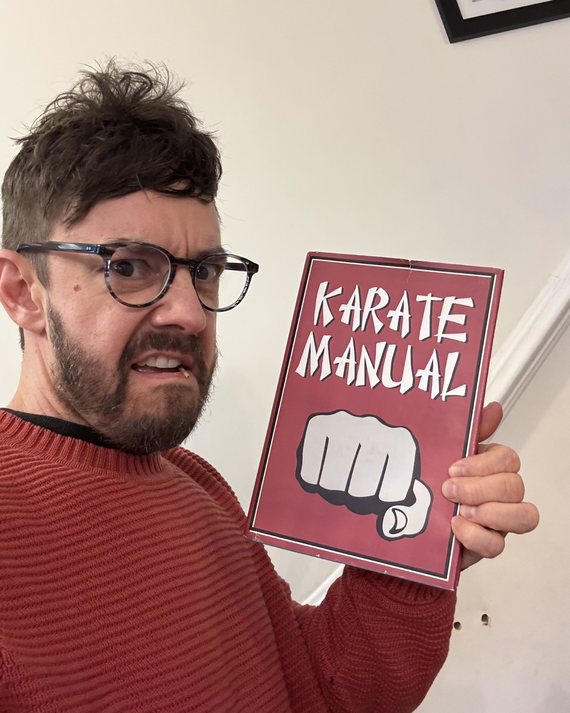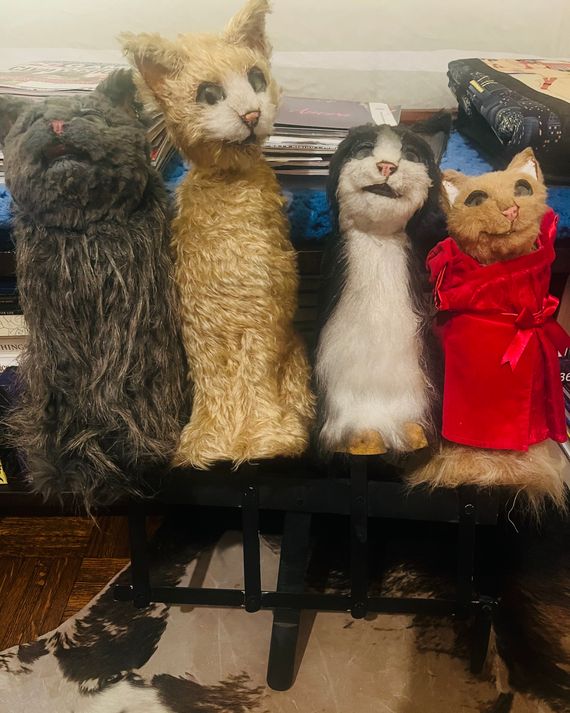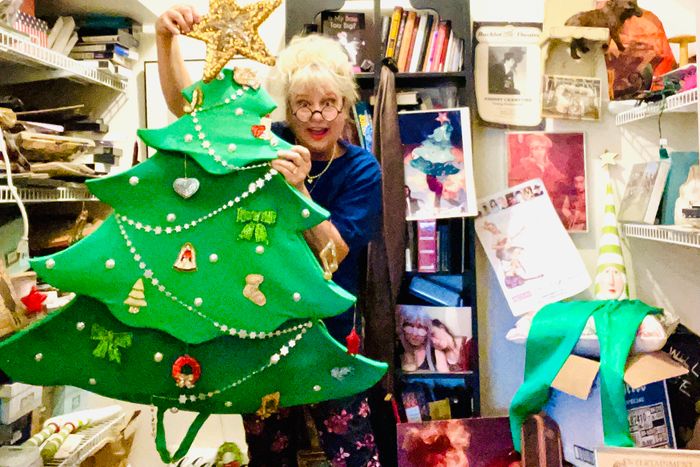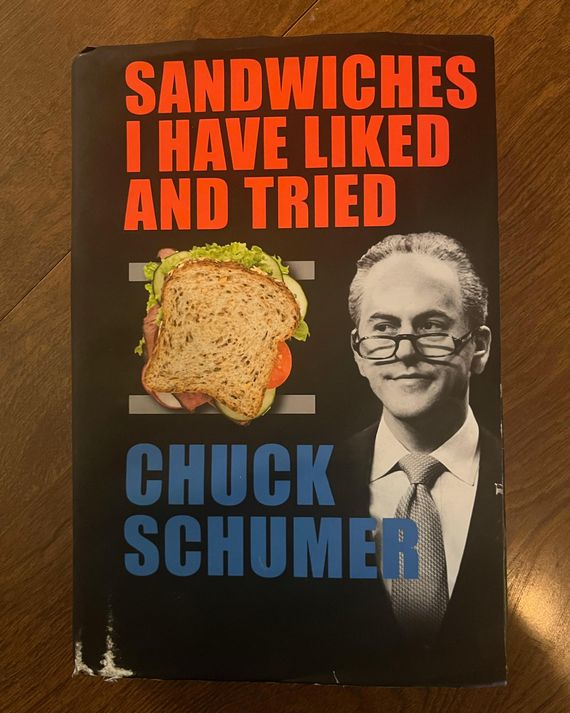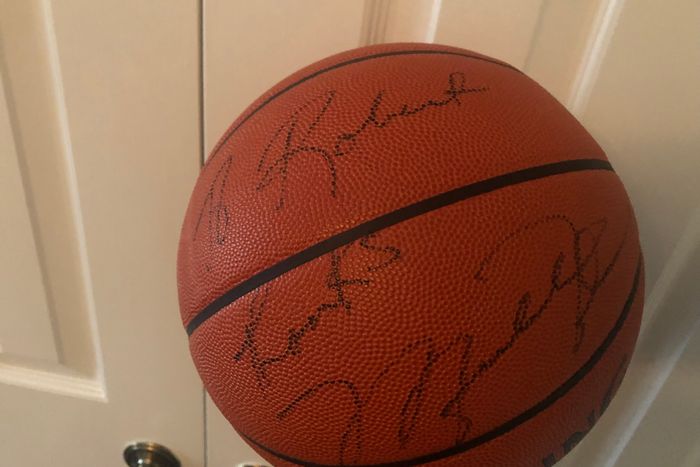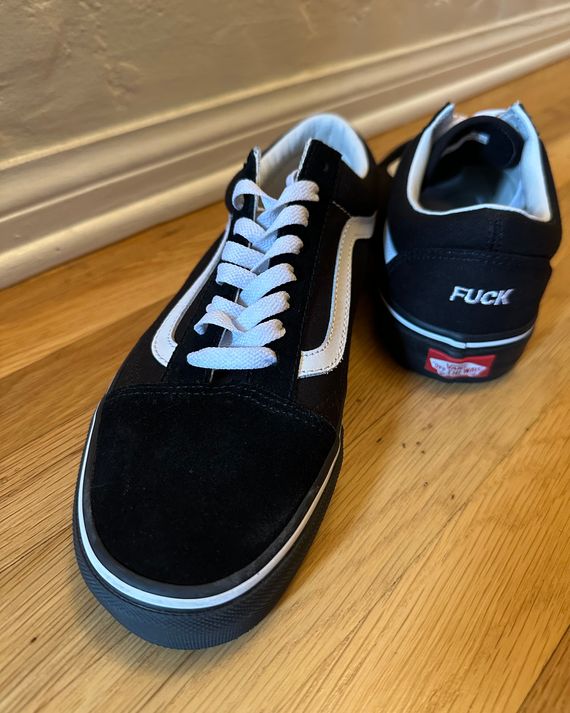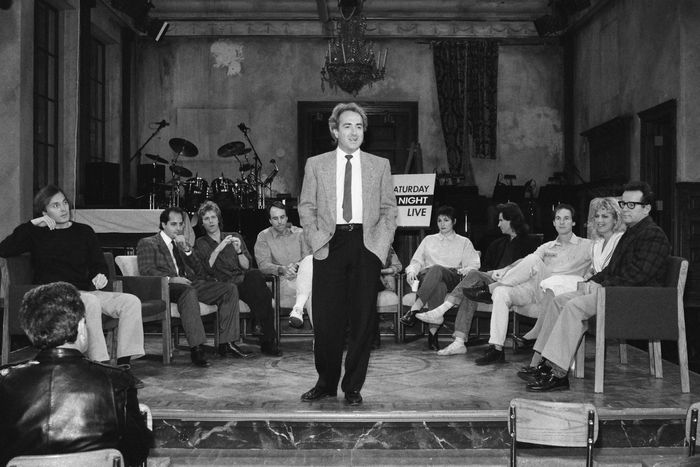SNL’s Legacy at 50, As Told by 65 Cast Members and Writers

Illustration: Tom Richmond
If there is an upper limit to the amount of ink that can be spilled to record, audit, and mythologize the history of Saturday Night Live, may the world never find it. When SNL airs its 50th-anniversary show on February 16, a minimum of five documentaries, one feature film, one new book, and dozens of articles will have been released in the last six months to mark this milestone. This on top of the regular stream of commentary the show inspires. For decades, every new season, every new episode, and every new sketch has been the subject of microscopic scrutiny, including fans obsessively counting the seconds each cast member appears onscreen. It’s a level of 24/7 analysis typically reserved for professional sports.
And much like the best sports pundits are often pro players, oftentimes the people most qualified to evangelize, criticize, and narrativize SNL are the cast members and writers who worked there — the rarified group who have personally had the experience of bringing it to life week to week. That’s why we decided the best way to honor SNL’s historic 50-year run is to cede the floor to them. Beginning in January, we reached out to 206 current and former cast members and writers of SNL and provided them with a questionnaire asking about everything from their most embarrassing SNL experiences to who, if anyone, is qualified to be Lorne Michaels’s successor. Sixty-five people participated: 44 men and 21 women, 44 cast members and 21 writers, and at least one representative from every year the show has existed. Participants were not obligated to answer every question, and many provided multiple responses to questions that asked for just one. The result is a uniquely comprehensive examination of SNL’s legacy that captures the perspectives of giant stars, cult heroes, and underrecognized talents alike.
• A Surreal New Job
• The Ultimate Cast Member
• Well, That Was Embarrassing
• The Funniest Sketch Ever
• Salary Transparency
• The Greatest Host
• Musical-Guest Memories
• The Catchphrase MVPs
• Addressing the Critics
• The Underrated Cast Member
• A Handful of Movie Pitches
• The Post-Good-bye Year
• Some Missed Connections
• A Scrapbook of Mementos
• Lessons From the Chaos
• Succession Speculations
• Frequent Misconceptions
• A 50-Season Legacy
Leo Allen — writer, three seasons (’02–’05)
James Anderson — writer, 20 seasons (’00–’20)
Alex Baze — writer, ten seasons (’04–’14)
Jim Belushi — cast member, two seasons (’83–’85)
Paul Brittain — cast member, two seasons (’10–’12)
Ellen Cleghorne — cast member, four seasons (’91–’95)
Denny Dillon — cast member, one season (’80–’81)
Rachel Dratch — cast member, seven seasons (’99–’06)
Anna Drezen — writer, six seasons (’16–’21)
Nora Dunn — cast member, five seasons (’85–’90)
Christine Ebersole — cast member, one season (’81–’82)
Dean Edwards — cast member, two seasons (’01–’03)
Abby Elliott — cast member, four seasons (’08–’12)
Hugh Fink — writer, seven seasons (’95–’02)
Al Franken — writer and cast member, 15 seasons (’75–’80; ’85–’95)
Tim Herlihy — writer, seven seasons (’94–’99)
Siobhan Fallon Hogan — cast member, one season (’91–’92)
Melanie Hutsell — cast member, three seasons (’91–’94)
Victoria Jackson — cast member, six seasons (’86–’92)
James Austin Johnson — cast member, four seasons (’21–present)
Chris Kelly — writer, six seasons (’11–’17)
Kevin Kelton — writer, two seasons (’83–’85)
Taran Killam — cast member, six seasons (’10–’16)
Mitchell Kriegman — writer, one season (’80)
David Koechner — cast member, one season (’95–’96)
Gary Kroeger — cast member, three seasons (’82–’85)
Matthew Laurance — cast member, one season (’80–’81)
John Lutz — writer, seven seasons (’04–’10)
David Mandel — writer, three seasons (’92–’95)
John Milhiser — cast member, one season (’13–’14)
Marilyn Suzanne Miller — writer, seven seasons (’75–’78; ’81–’82; ’93–’95)
Jerry Minor — cast member, one season (’00–’01)
Finesse Mitchell — cast member, three seasons (’03–’06)
Alex Moffat — cast member, six seasons (’16–’22)
Bobby Moynihan — cast member, nine seasons (’08–’17)
Lew Morton — writer, two seasons (’93–’95)
Christine Nangle — writer, three seasons (’09–’12
Laraine Newman — cast member, five seasons (’75–’80)
Nasim Pedrad — cast member, five seasons (’09–’14)
Jay Pharoah — cast member, six seasons (’10–’16)
Joe Piscopo — cast member, four seasons (’80–’84)
Amy Poehler — cast member, seven seasons (’01–’08)
Simon Rich — writer, four seasons (’07–’11)
Jeff Richards — cast member, three seasons (’01–’04)
Rob Riggle — cast member, one season (’04–’05)
Jon Rudnitsky — cast member, one season (’15–’16)
Akiva Schaffer — writer, six seasons (’05–’11)
Michael Schur — writer, seven seasons (’98–’04)
Paul Shaffer — cast member, one season (’79–’80)
T. Sean Shannon — writer, eight seasons (’98–’06)
Harry Shearer — cast member, two seasons (’79–’80; ’84–’85)
Sarah Silverman — cast member, one season (’93–’94)
Robert Smigel — writer and cast member, 20 seasons (’85–’93; ’96–’08)
Cecily Strong — cast member, 11 seasons (’12–’22)
Julia Sweeney — cast member, four seasons (’90–’94)
Jorma Taccone — writer, five seasons (’05–’10)
Julio Torres — writer, three seasons (’16–’19)
Michaela Watkins — cast member, one season (’08–’09)
Patrick Weathers — cast member, one season (’80–’81)
Noël Wells — cast member, one season (’13–’14)
Brooks Wheelan — cast member, one season (’13–’14)
Walter Williams — writer, one season (’78–’79)
Fred Wolf — writer and cast member, four seasons (’93–’96)
Sasheer Zamata — cast member, four seasons (’14–’17)
Alan Zweibel — writer and cast member, five seasons (’75–’80)
Photo: Dana Edelson/NBCU Photo Bank/NBCUniversal via Getty Images
Getting my photo taken for the opening credits. I’m there in the studio getting my picture taken, and the musical guest for my very first show was David Bowie. So the musical guests rehearse on Thursday afternoons, which just happened to be when my photo was being taken, and so right over there on the stage is David Bowie singing “Rebel Rebel” with his band. Mind-blowing moment — beyond the dream come true. Sure, the dream is to be getting your picture taken for the SNL credits, but who’s gonna think to throw David Bowie into their dream moment?! —Rachel Dratch
When Don Pardo said my name. —Amy Poehler
The first week I was there, I contributed one single joke to one single sketch. Tracy Morgan and Samuel L. Jackson were on the Titanic and wondering when they would be allowed to board the lifeboats. Will Ferrell was running around calling out evacuees: “All first-class passengers to the lifeboats! All second- and third-class passengers to the lifeboats. All pets!” And so on. My joke was “All empty lifeboats should now be placed into other lifeboats.” I went to the floor to watch it on air, and Will said the line and people laughed. I felt like, Okay, if I get fired tomorrow, I can say I actually wrote for Saturday Night Live. Then after the show, in the credits, my name was spelled wrong. So the complete SNL ego roller coaster in my very first week. —Michael Schur
I joined the show right around when 9/11 happened, so being there when Giuliani appeared alongside Paul Simon and the FDNY in the cold opening was pretty incredible. —Jeff Richards
My second episode was the Tim Robbins–Sinéad O’Connor episode. We were watching in the studio when she tore up the pope’s picture, and by the following morning, it was a giant story. —David Mandel
Benedict Cumberbund hosted the show the week the Cubs won the World Series. And I’m from Chicago, so the week was already huge. I think it was early November, 2016, so it was maybe my fourth show. Four of the Cubs did a bit with Bill Murray on “Update,” and Dana Carvey did Church Lady. It was all very surreal. Then, during the “good nights,” as Benny Cumberland read off all their names and I looked around the studio, I thought of my little 10-year-old self and what he’d say, and I just started weeping. I was in the middle of a dream. I tried to stifle it, but it was pretty obvious. I hugged Cecily Strong, a fellow Chicagoan, who I knew back in our early improv days, and she noticed I was having that moment. She rubbed my shoulders and went, “Awwww, this pretty big for you, ay bud?” —Alex Moffat
On a Monday evening, I’m walking into 30 Rock, and I see Chris Farley pass me in the revolving door; he exits onto the plaza, I enter the building. I went to the Monday meeting, and bam! Michael Jordan was sitting in the host chair. You have entered the SNL vortex. —Ellen Cleghorne
Read the full collection of responses here.
Graphic: Vulture; Photos: Getty, SNL Studios
“Quintessential” SNL cast member is a different superlative than “best” or “funniest”; it demands people identify the ineffable quality that defines SNL, then ask themselves who best embodies it. For some, that’s versatility — the utility players who help the show shape-shift from week to week and cater to an impossible range of sensibilities. For others, it’s longevity — the people who have stuck around so long they’re now synonymous with the show. For a third group, it’s the ability to capture SNL’s unique cocktail of chaos, joy, and whimsy. But for many of the SNL alums who completed our survey, this was ultimately a question of, “Who can commit completely and make others better, even if that means going down with the ship?” Harry Shearer, for example, answered our question with another question: “Who best represents the spirit of the Titanic?”
Chris Farley. He was the best cast member to capture the “giggle breathlessly with your best friends from high school” energy. —Taran Killam
Kenan! He does funny impressions and characters, has the best personality, and never seems to lose his mind during all the craziness, which is impossible! He’s always got a twinkle in his eye during sketches and makes everyone around him have more fun. —Cecily Strong
Phil Hartman. Absolute Swiss Army knife. Could be a straight man, a lunatic, a pitch man. He worked with everybody and brought every line up a level. —Alex Baze
I’d go with Gilda Radner because not only was she funny, she was brave enough to bare her soul by revealing her insecurities so the audience got to know the person who was making them laugh. —Alan Zweibel
Will Ferrell comes to mind right away. He was just always trying new things and thinking outside the box. He would put something up that was really out there and wasn’t afraid to take risks. You can see the joy in his work. —Rachel Dratch
I’m going to say Bill Murray, because he can be cool and edgy and dark, but he also throws himself entirely into everything he does, to this day. Whenever he appears on SNL anniversaries, he never comes off like it’s enough that he showed up. He commits, he takes chances, he’s willing to be a complete fool. —Robert Smigel
Dan Aykroyd. Dan is the embodiment of everything that is SNL: heart, soul, preparedness, and execution. —Joe Piscopo
Tina Fey: tireless, workhorse, savvy, silly, ballsy, confident, pop-culture-conscious, inscrutable. —Michaela Watkins
John Belushi. Because of his passion, energy, pure comedy, and chaos. —David Koechner
Maya Rudolph. She can do everything. Her stuff is very silly and ridiculous. She’s in tune with the room. She’s a great singer, and a great comedy singer, which are very different things. I’m really, really lucky I got some time with her during the election. I’m still pissed there wasn’t a second debate. —James Austin Johnson
• Gilda Radner’s appeal is pretty universal and spans generations, from those who worked with her (Alan Zweibel, Marilyn Suzanne Miller, Al Franken) to ’80s-era alums (Matthew Laurance, Denny Dillon, Patrick Weathers) to more modern cast members (Alex Moffat, Noël Wells). By comparison, Kenan Thompson is the overwhelming choice from most respondents who worked on the show within the past two decades.
• Deep-cut alert: Christine Ebersole singled out her fellow season-seven castmate Tim Kazurinsky, for both his professionalism and being “very, very nice to work with.” Both important traits!
Photo: Al Levine/NBCU Photo Bank/Getty Images
Sometimes on Friday nights, Lorne would call John Mulaney and I into his office and have us pitch the host our monologue by performing it for them ourselves, in its entirety, while they stared at us in dead-eyed silence. Some of these monologues had songs in them, which meant we had to sing to the host, a cappella. On at least one occasion, we danced. —Simon Rich
I once wrote a piece for Seth for “Update,” and it was absolutely dying during dress. I was under the bleachers with Lorne, who watched the whole thing unsmiling and wordlessly. Then when it ended, he looked at me and said, “Do you want me to help you bury the tape?” I think I said, “No, I got it.” —Alex Baze
Once, I was dressed as an old woman and walked directly in front of the camera with my old granny wig during dress rehearsal, because I didn’t quite know how the cameras and blocking worked. I was convinced I’d get fired. —Cecily Strong
I forgot a line that I was staring at on a cue card. —Noël Wells
Read the full collection of responses here.
Graphic: Vulture; Photos: Getty, SNL Studios
“You have to know this question is insane,” Alex Baze wrote in response to this — a sentiment repeated by 11 other people who participated in our survey. “There are too many types of premises, kinds of laughs, or Jack Handey–esque nuances to consider,” added Fred Wolf. With over 10,000 sketches having aired throughout SNL’s history, it’s true that the task of crowning a single “funniest” one is impossible. As a result, the responses speak more to our respondents’ personal tastes, formative viewing years, and experiences working at SNL than they do any objectively measurable quality.
“I’m definitely biased because I was in them, but I think the ‘Black Jeopardy’ sketches created the funniest and most memorable moments for the show — and some of the best blending of social commentary and comedy,” said Sasheer Zamata. “I think ‘Debbie Downer’ was my favorite, just because of the cast not being able to keep it together,” said Jay Pharoah. The latter, which was also name-checked by Amy Poehler, speaks to the fact that there are individual sketches that have endured in the public consciousness long enough to warrant special recognition — none more so, according to our tally, than “James Brown’s Celebrity Hot Tub Party.” Per Robert Smigel, it’s the “ridiculously brilliant impression combined with the brilliantly stupid idea” that makes this sketch historically great.
• “Spelling Bee” edging out more populist fare like “Schweddy Balls” is the SNL equivalent of a record-store employee opining which lost tracks are worth rediscovering or a sommelier recommending a tastemaker’s wine. We can thank Jorma Taccone, Chris Kelly, and Michael Schur for their advocacy.
• Out of 13 consensus votes, six selections were part of a recurring sketch (and seven if you want to get extremely technical and count Will Ferrell’s Gene Frenkle popping up alongside musical guest Queens of the Stone Age in 2005). “First CityWide Change Bank” is the one commercial parody, while Roseanne Roseannadanna represents the “Update” desk.
It’s time for some cold, hard numbers. Some respondents declined to answer this question, others said they couldn’t remember, a handful answered without specifics, and Ellen Cleghorne used the question to note that she’s still waiting for some of that salary to be sent her way. “I did a lot of writing on the show and never received compensation for it,” she wrote. “If this can help me recuperate the money owed to me, I would be grateful.” While we wait for NBCUniversal to send Cleghorne her check, below are the respondents who offered partial or full salary transparency.
$750 per show, and after five years, $4,000. We had Jane Curtin negotiate for all of us, being the only grown-up in the room. —Laraine Newman (cast)
First season was $325 a show until my option was picked up and it became scale, which I think was around $580 a show. My last season (’79–’80), I was making $1,250 a show. —Alan Zweibel (writer)
Both Herb Sargent and I were already writers and Guild members; we’d worked a lot in the union and TV. We got $750 a week. —Marilyn Suzanne Miller (writer)
I was a guest star on season one with the original cast and paid $350. I became a cast member for season six, and the AFTRA union paid $650 a week. —Denny Dillon (cast)
Maybe $600 a week. —Matthew Laurance (cast)
$5,000 per week. —Christine Ebersole (cast)
It was not a lot! I think about $1,500 a week. —Patrick Weathers (cast)
I think it was $17,000 combined — acting and writing. —Jim Belushi (cast)
Three grand a week, and 25 grand a week. —Joe Piscopo (cast)
$2,850 per episode, which was low. (I believe the top of the show for a writer back then was $6,500.) When I got renewed for the next year, they only bumped me up a few hundred bucks. But after a few episodes of that second season, I was kicking ass getting material on, and Dick Ebersol reluctantly agreed to give me another raise to $4,000, the same salary that several other writers were getting. It wasn’t top of the show, but it was a nice pay raise. I’m quite sure it’s the last time I ever made the same salary as Larry David. —Kevin Kelton (writer)
First season was $3,500 a week. Last season I think was $7,000. —Nora Dunn (cast)
$6,000 per show; over $30,000 per show. —Victoria Jackson (cast)
I think I made $100,000, and thank God, because I got fired after one season, and I made that money stretch for a long time after. —Sarah Silverman (cast)
I was only on one season, and I believe it was $6,500 per episode. —David Koechner (cast)
I was an apprentice writer, so I was making 75 percent of Guild scale. I think my checks before taxes were $850 a week, and I felt like the richest dude in New York. —Michael Schur (writer)
I want to say it was $10,000 a week. I believe I’m not speaking out of turn: Everybody got paid the same thing. Writers and cast members all start out with the same salary. And I believe that the way they did raises was just by time. No merit raise, or somebody renegotiating their contract saying, “I’m getting a lot of sketches, I’m a star!” There’s none of that. But I would imagine that Kenan is probably making pretty good money! —Jerry Minor (cast)
$5,000 a week. —Rob Riggle (cast)
First season — like 1,300 bucks after taxes. Last season — cocaine. ’70s cocaine that they found under a seat in the studio. —Bobby Moynihan (cast)
I think like $3,000 a week first year and then ended at $20,000 a show. —Anna Drezen (writer)
$5,000 an episode for my only year. —Brooks Wheelan (cast)
Hey, man, don’t ask a Black man about his pockets … but $5,000 per episode. —Jay Pharoah (cast)
I made $5,000 an episode for my first season and my last season, since my first season was also my last season. —Jon Rudnitsky (cast)
Graphic: Vulture; Photos: Getty, SNL Studios
Cecily Strong defines the qualities of a good SNL host as someone who “knows how the show works, seems to have a genuinely good time, and brings everyone up around them.” It’s why, according to her and two other respondents, the show’s best hosts are former cast members. This category’s top contenders meet this criteria in that they’re honorary cast members; they’re all inductees of SNL’s Five-Timers’ Club who possess a knack for elevating the show’s material. They are, as Robert Smigel puts it, “the ones who’ve done it the most.” That includes: Alec Baldwin, whom David Mandel says writers would save their best sketches for because they “didn’t want to waste them on other hosts”; Tom Hanks, whom Jerry Minor describes as “almost like another cast member”; and Christopher Walken, who sticks out in Rachel Dratch’s memory because he “always brought the weird.”
• Only two votes for Justin Timberlake feels low. (Should he really be only narrowly ahead of Mitchell Kriegman’s joke pick, Herbert Hoover?!) His hosting period ranges from 2003–2013, which means roughly one-third of our participants worked directly with him and could have gone to bat for his inclusion as a historically great host. Former writers Alex Baze and Jorma Taccone were the only contributors to single him out.
• While the top contenders in this category are all beloved Five-Timers’ Club members, there’s one glaring exclusion: John Goodman, who hasn’t hosted in over a decade. (Presumably, Emma Stone took his slot.) Meanwhile, props for the more unexpected picks, including former cast member Gary Kroeger calling out Howard Hesseman, who hosted twice in season eight.
My girlfriend loved Sinéad O’Connor, so she came to see her on the live show. We watched from about ten feet away. When Sinéad tore the picture of the pope, it was the quietest I’d ever heard the studio. It was almost like time froze for a moment until people got over their shock and resumed moving and breathing. —Robert Smigel
When Adele hosted in 2020, I went back to write, and she wasn’t the musical guest that week, but toyed with the idea of singing a surprise new song off 30 at the end of the show. She eventually decided not to, but in the event she did, they wanted to do a camera rehearsal of the song on Friday night so everyone would at least know the staging. Adele was nervous the song would leak because this was way before the album came out, so none of the cameras were allowed to record, all the monitors in the building went black, and no one was allowed in the studio except Lorne, the ADs, and the camera operators. But right before she started, Lorne saw me and gave me a nod like, Of course, come stand with me. And so I did! I got to watch her perform “Hold On” for the first time ever, and it was just very special and very cool. —Chris Kelly
It’s a tie between Sandler doing “The Chanukah Song III” during one of the episodes leading up to the holidays in ’02, and witnessing Beyoncé’s solo-career debut when she performed “Crazy in Love” for the first time on national television in ’03. When Don Pardo announced, “Ladies and gentleman … Adam Sandler,” the live studio audience lost it. You could actually feel the electricity in the air, and it was overwhelming. Then, fast-forward about five months later, and the not-yet-dubbed “Queen Bey” revealed that “uh-oh” booty shake to the syncopated rhythm of those drums and horns, and the electricity returned. I remember my wife was next to me, and I was between her and Mike Shoemaker, giddy and dancing with reckless abandon. That was the birth of the Beyhive that night in Studio 8H. —Dean Edwards
I saw the U2 performance where Bono went rogue and walked into the crowd. I was in the control room, and Beth McCarthy-Miller just started screaming instructions: “Break the camera! Follow him!” It was thrilling, and the best of what the show is: spontaneous, live TV produced by the best people in the business. —Michael Schur
Pearl Jam, before they broke huge. I watched Thursday’s rehearsal and couldn’t believe my ears (“Alive”?!). I talked to Eddie Vedder after, gushing like a crazy man about his vocals. Then he started gushing: “I was just a mad scientist skateboarding San Diego streets. Now here I am at the mighty SNL! Dude, what’s it like to get to be here?” —Fred Wolf
After I was off the show, I came back for the season-finale after-party one year. The season-finale party is always outside where the rink is at 30 Rock, so it feels extra special — although most years when I was there, it was so cold and rainy that it had to be moved inside. I think Mick Jagger had been the host that night, and Dave Grohl had been the musical guest. At the party, at like three in the morning, Mick Jagger got up and sang like three songs, and Dave Grohl was performing with him — outside, in the middle of New York City, at 3 a.m. Imagine someone just walking through midtown at that moment and looking down and seeing that?! —Rachel Dratch
Ed Sheeran playing “Shivers,” but only because Lorne was so into it and just dancing so hard. —James Austin Johnson
Graphic: Vulture; Photos: Getty, SNL Studios
SNL has produced tons of classic and beloved sketches, but a much smaller subset has spawned memorable catchphrases that inspire pop-culture references and emblazon kitschy merchandise. There are only a handful of these per era, and as Paul Shaffer put it, “It changes depending how old you are.” Of course, catchphrases can also be extremely personal and specific. “Kate McKinnon saying things like ‘full Porky Pig’n it in a drafty dome’ will never leave my brain,” Sasheer Zamata wrote.
But most people simply quoted a famous line without naming the accompanying sketch, because the reference is already obvious. (Julia Sweeney’s response in full: “I am 35 years old, I am thrice divorced, and I live in a van down by the river!”) The most quotable sketches penetrate down to the unlikeliest recesses of the Zeitgeist, which is certainly the case for the runaway winner of this category. “I think even Ben Carson quoted ‘More Cowbell’ at some point, so I guess that one,” writes Cecily Strong.
• The wide gulf between the winner, “More Cowbell,” and (much older) runners-up like “Church Chat” and “Wayne’s World” highlights the rarefied air around Will Ferrell’s ode to Blue Oyster Cult in pop culture today. During SNL40, Wayne and Garth were the ringers who closed out the show; in the recent Peacock documentaries, references to them pale in comparison to “Cowbell,” which got its own episode.
• “Bill Swerski’s Superfans” barely missed the cut here, but Jerry Minor correctly pointed out that it is the kind of sketch that’s entered the American lexicon, even if people don’t realize where it’s from. Very true!
• The inclusion of defining sketches from Will Ferrell and Mike Myers is no surprise. More interesting: Dan Aykroyd has three leading sketches when you factor in “The Olympia Restaurant” (“Cheeseburger, cheeseburger!”) and “Wild and Crazy Guys,” a subtle reminder about his long-term impact on the show. As writer Kevin Kelton noted after recently rewatching Aykroyd alongside his partner John Belushi: “It’s so clear how they set the bar for every other cast member to come.”
It’s valid because that’s the nature of the whole project. It’s not going to be funny all the time. It’s a new show every week; it can’t always be great. That’s a valid criticism, and everybody knows that. —Jerry Minor
If there are so many paid writers, why is the show not better written? —Hugh Fink
That it’s lost its edge. That’s not true — very subjective and extreme generalization. —Jay Pharoah
The cast is too large at times, you can’t get to know them. Also, I personally wish the prime political figures were played by cast members instead of celebrities. I get why Lorne does it now, but so much of the fun of the era I grew up with was Dana Carvey playing George Bush or Darrell Hammond finding an incredible Al Gore. —Michael Schur
That it’s a boys’ club. —Denny Dillon
That the comedy was geared toward men for so many years. —Nora Dunn
Once that it was male-dominated, but that seems to have changed. And I’m glad for it. —Gary Kroeger
The show faced criticism over the years for lacking diversity, which I think is fair. However, I think the last decade or so shows SNL’s commitment to showcasing a wider range of comedic voices and talents. I love the current voice of the show. —John Milhiser
When I got hired, someone commented, “SNL just hired a bunch of fruits and women.” Which was true; we were that! —Anna Drezen
That it’s an extremely cutthroat environment. —Rob Riggle
That there probably is a less stressful way to make that show. —Brooks Wheelan
That it causes panic attacks for people who work there. —Jorma Taccone
In my observation, there seemed to be a necessary-at-times but also unnecessary level of stress in the work-culture dynamics … but what do I know. —Michaela Watkins
“Live” is a good way to do poor television comedy. —Harry Shearer
They don’t take advantage of being on the air in real time. There’s a lot of comedy that could take advantage of “live,” but they don’t. Instead, a lot of times, there’s simply no reason why the program needs to be live, and it’s a bit puffed-up. —Mitchell Kriegman
That the “Weekend Update” guys break the fourth wall (it should never be done) and laugh at their own jokes. I counted 24 breaks of the fourth wall in one episode. It’s shameful. —Jim Belushi
Too political — follows a narrative that becomes not funny. —Christine Ebersole
It’s become too politically biased and lost its original goal of being funny. —Victoria Jackson
The cold opens are pretty long. —Jon Rudnitsky
Too conservative. Yes, I said it: too conservative. Not hard enough on corporate behavior and insane politics. Yes, I said it! —Julia Sweeney
When it toadies and conforms to suck up to politicians … well, that’s not a good look. —Mitchell Kriegman
Some sketches have weird endings, I guess, or is that it’s not as funny as the “so and so years,” which is usually the years they actually watched the show. —Finesse Mitchell
You can always tell when someone says, “The sketches go on too long!” that they haven’t watched the show in 30 years, because that used to be the cliché critique. —Rachel Dratch
That it’s been uneven. For example, there were years when recurring characters were overused. That meant that the cast was stronger than the writers. Some years, the reverse has been true. —Al Franken
There’s less big hits and many more misses because a 90-minute show makes consistency literally impossible. —Fred Wolf
How “hit-or-miss” it is — that it’s far from perfect most of the time. But I’m of the opinion that imperfection, experimentation, trial and error, and frayed seams are to be embraced in the era of AI-generated content. —Julio Torres
The show is always uneven — that’s part of the fun! —Akiva Schaffer
Graphic: Vulture; Photos: Getty, SNL Studios
Of the 167 people who have been SNL cast members, a remarkable 42 of them tallied at least one vote for this category. That breaks down to one out of every four people who has been in the show’s opening credits. SNL is a gigantic machine, where individual sketches often require the unacknowledged contributions of a half-dozen or so cast members to work. Extrapolate that over the course of a season (or 50), and it’s clear why the show is so adept at producing thankless workhorses and under-the-radar MVPs.
One of the biggest contenders here, Chris Parnell, is a classic example; Jerry Minor describes him as a performer “who could do it all” but was also content instead to do “what was asked of him.” Tim Robinson’s inclusion, meanwhile, is seemingly more about his post-SNL success; his hit sketch show, I Think You Should Leave, was referenced by both Chris Kelly and Cecily Strong.
• These selections fall into three distinct cast-member archetypes. Parnell is an embodiment of the steady-hand yeoman “glue” cast member, which was originally assigned to Phil Hartman before he was elevated to the show’s Mount Rushmore. Will Forte is an iconoclast, someone who found opportunities to innovate and get weird stuff on the air, whether it was “The Falconer” or “Potato Chip.” Tim Robinson’s post-show success puts him more in the Ben Stiller or Sarah Silverman lane of cast members who didn’t gel during their one season at 8H then quickly went on to bigger and better things.
• Maybe case zero for a cast member misused during his tenure, Garrett Morris was called out by his peers Paul Shaffer and Marilyn Suzanne Miller for his incredible versatility.
• Laraine Newman’s taste remains unmatched. Her choices were all quirky one-season figures from three separate eras who demonstrated their considerable talents elsewhere: Siobhan Fallon Hogan, Aristotle Athari, and Christine Ebersole.
The typical SNL sketch is, by definition, a self-contained piece. The world it constructs, the characters who inhabit it, and the logic that governs it aren’t designed to withstand extended scrutiny. “I think almost every SNL sketch and character is better at four minutes than two hours,” argued Alex Baze. Still, “almost every” is not “every,” and SNL history is littered with classic sketches and breakout characters like Wayne Campbell, Mary Katherine Gallagher, and MacGruber that have been adapted into feature films.
James Anderson would like to see a movie about Rachel Dratch’s Debbie Downer where “she’s in charge of making alien contact and bums the aliens out so bad they put Earth on their never-visit-again list.” (Leo Allen, in his reply, took it one step further and proposed a director for a “Debbie Downer” adaptation: Kelly Reichardt, “if she got final cut.”) Julio Torres, meanwhile, thinks examining how “The Californians” are holding up against “the current hellscape of late-stage capitalism and failed neoliberalism” would make a worthwhile trip to the cinema. Ultimately, this is a question of which characters have withstood repeat appearances without exhausting their narrative and comedic potential. Sarah Silverman took the opportunity to “officially pitch” a no-brainer: “Will Ferrell as Alex Trebek in The Unauthorized Alex Trebek Story.”
• While it is true that Ed Grimley never made the leap to the silver screen, it’s worth pointing out the character earned his own Hanna-Barbera animated series The Completely Mental Misadventures of Ed Grimley in the late ’80s.
• Despite appearing in A Night at the Roxbury, Ladies Man, and Superstar, Will Ferrell never saw Spartan’s Craig leave the sketch format, but former cast member John Milhiser has a great pitch for a potential movie: “There’s a whole world of supporting characters there that would be fun to see. We could finally meet Alexis. I could see Craig and Ariana hitting the road looking for the perfect cheer, and along the way, cheering on sporting events that don’t need or want cheerleaders there. Like a pickleball match or the pommel-horse event at the Olympics. They eventually earn the respect of the cheerleading community and win the National Cheerleading Championship. They discover the perfect cheer was them all along.”
• No votes for “Sprockets,” which famously was almost turned into a feature-length movie by Mike Myers, who bailed on the project last-minute. (It also would have co-starred Will Ferrell!) This resulted in Myers getting sued by Universal, which led to a settlement that preluded the unfortunate big-screen adaptation of The Cat in the Hat.
• Voters were also similarly not swayed by the Team Coco podcast series on the lost “Hans and Franz” movie. It received no votes.
• Marilyn Suzanne Miller offered a more unexpected choice: “Rhonda Weiss, who I wrote for Gilda. A Jewish girl, her name was a sorority sister’s of mine; not sure why I thought I had the right to use her real name. Jewish women were and are not represented in the history of American film. It would have been very interesting to see what would have happened to her. The idea of centering a film around a typical kind of Jewish girl that existed then would have been more than terrific. Until Barbra Streisand, there were not a lot of Jewish women who were attractive and multifaceted, and you could go at them in a million ways. It wasn’t done and still hasn’t been, really. She was attractive — Gilda and I both felt like Jewish women, while they’re not Annette Funicello or Sandra Dee, they’re women too.”
• Julia Sweeney called out Aidy Bryant’s Carrie Krum, an inspired selection.
Photo-Illustration: Vulture; Photos: Everett Collection (Buena Vista, Comedy Central), Comedy Dynamics via YouTube
Depressing as fuck. —Jorma Taccone
Terrible. I left early (in retrospect, it was a poor decision) before my contract was up, and Lorne was mad at me. My brother got cancer and had no insurance, and all the money I had managed to save was flying out the window on his treatment. My parents moved in with me into my very small house, and they also had no money to help out. Then the Pat movie came out and was the biggest bomb of any SNL movie (even though I still think it’s pretty good). And then to top it all off, I got cancer! That all happened in the first six months after I left. But it all seemed to work out in the end, I must say. I did a successful one-person Broadway show about my cancer, the movie was well received (God Said Ha!), I found my place in Hollywood again after my brother passed away, and my parents went back to Spokane. —Julia Sweeney
Tuesday nights (writing night) were weird for a while. I was so used to that pressure of having to write something on those nights, I had to distract myself the first few weeks. I took Amy Poehler’s advice when she said that on the first writing night I’m not there, I should go out to a fancy dinner to celebrate the fact that I no longer needed to work until ten in the morning. —John Lutz
I continued playing the piano. —Paul Shaffer
New baby, new show. —Amy Poehler
Feels weird that the show goes on without you. Feels like they should’ve stopped when you left. —Akiva Schaffer
Read the full collection of responses here.
Graphic: Vulture; Photos: Getty, SNL Studios
So often, these SNL missed connections are a matter of when as much as who. They speak to people, like John Lutz, who missed their chance to work with their dream collaborator (in his case, Kate McKinnon) by a year or two. “Everything she did on the show was my type of humor,” he wrote. Some reflections are tinged with the regret of a missed opportunity to work with a colleague they did overlap with. “I became great friends with Mike O’Brien after I left, and we never worked together when I was there, and that bums me out looking back,” wrote Brooks Wheelan.
But the most common responses are alums who wish they could have worked with the heroes they grew up watching or talent from a later era they felt a creative kinship with from afar. “The group I adored growing up was Molly Shannon, Cheri Oteri, Ana Gasteyer, and Maya Rudolph,” says Chris Kelly. “Those women would have been so fun to write for while they were on the show.” Laraine Newman gave a shout-out to a group she called “the holy trinity”: Kristen Wiig, Rudolph, and Tina Fey. Jerry Minor even took the opportunity to try to manifest his dream: “Eddie Murphy, in any capacity. Eddie, you out there?!”
• Dearly departed luminaries Phil Hartman and Gilda Radner are the only names trailing behind Eddie Murphy in his prime. More obscure figures also got representation, including early-season writers whose reputation and work transcends their deaths. Disparate cast members Jim Belushi and Jeff Richards lamented over never working with the maniacal former head writer Michael O’Donoghue. Patrick Weathers called out Anne Beatts, who died in 2021, while Denny Dillon picked Douglas McGrath, who died in 2022.
• In lighter news: While season-six featured player Matthew Laurance barely missed original writer Alan Zweibel at the show by a matter of months, he has some solace: They collaborated together while in a high-school advanced English class. Fun fact!
I. Stole. Everything. —Bobby Moynihan
A cue card from the first time I got to say, “Live from New York!” on-air in the cold open. —Nasim Pedrad
Photo: Courtesy of Finesse Mitchell
My first show ticket from 2003 with Jack Black hosting. —Finesse Mitchell
Photo: Courtesy of Walter Williams
My script book. —Walter Williams
Photo: Courtesy of Michael Schur
My nameplate from my first office. —Michael Schur
Photo: Courtesy of Noël Wells
I took a photo every single day on Instax film, and I have over 100 awesome candid pictures. —Noël Wells
Photo: Courtesy of Lew Morton
A pile of yellow-pad pages and ATM deposit envelopes with panicked lists of sketch ideas. —Lew Morton
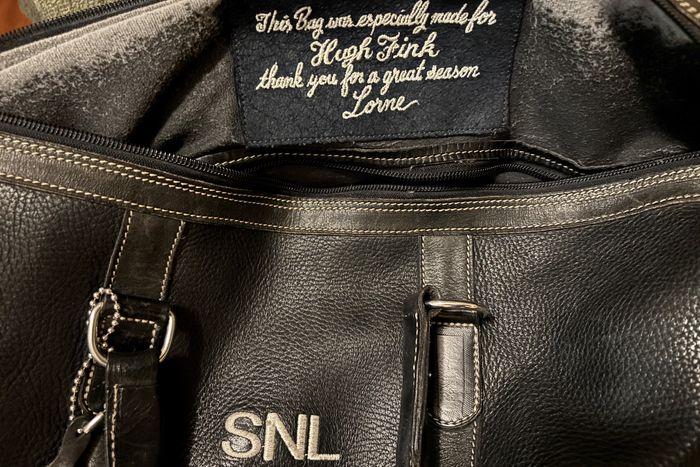
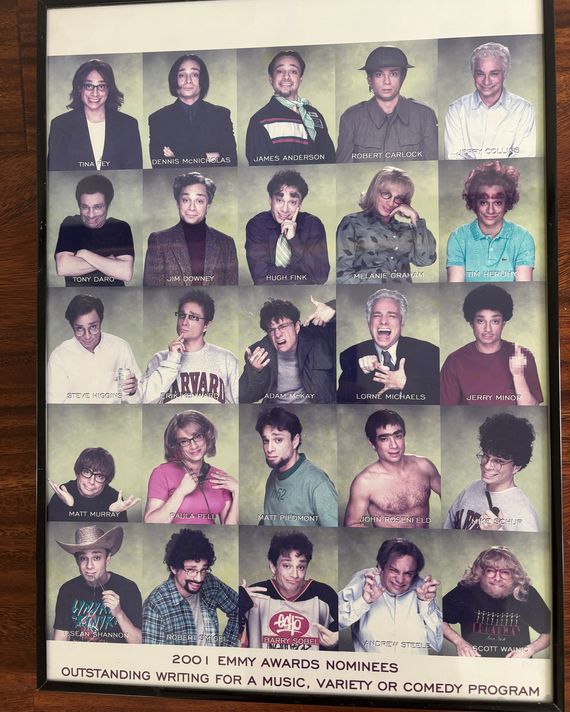
Photo: Courtesy of Hugh Fink.
Photo: Courtesy of Hugh Fink.
A black leather duffel bag that includes an embroidered inscription reading, “Thank you for a great season, Lorne.” I also have a framed poster of Chris Kattan dressed up as every writer on the staff to honor us for our 2001 Emmy Award nomination. —Hugh Fink
I only kept one thing. It’s the cue card from a sketch I wrote with Tim Robinson and Zach Kanin where I’m in a vent screaming that the possums have tricked us and they have knives. —Brooks Wheelan
I have a bowling shirt that our costume designer, Franne Lee, made for all the cast members. It had our names embroidered in the front and a beautiful embroidered “Saturday Night” on the back. This was before we could call ourselves Saturday Night Live, because of the Howard Cosell Saturday Night Live. —Laraine Newman
Photo: Courtesy of Julia Sweeney
I had a lamp that’s a bust of Elvis with a ridiculous lampshade that was in my dressing room, and it had been in Gilda’s dressing room. When I left, I asked if I could have it, and everyone said yes. —Julia Sweeney
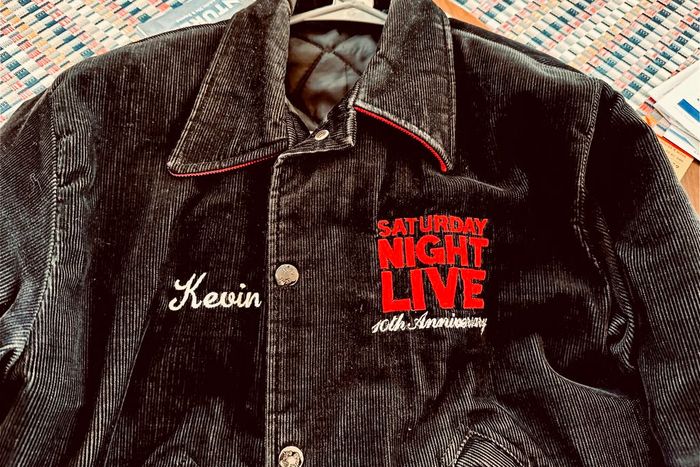
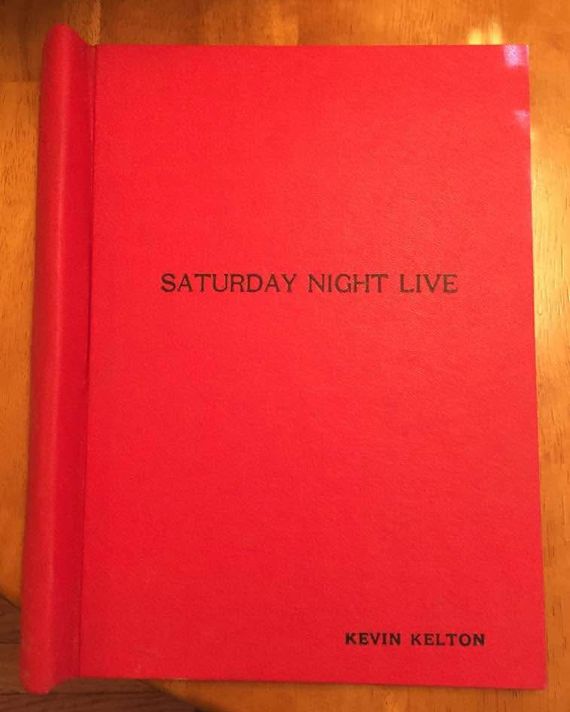
Photo: Courtesy of Kevin Kelton.
Photo: Courtesy of Kevin Kelton.
I still have my red script binder with my name embossed. I also have two show jackets — a green one with my name on it and a white one I bought for my dad with his name stitched on the front. My dad is no longer with us, but when SNL first came on the air in the ’70s, he and I would watch it together. So that jacket with his name is among my most precious possessions now. I wear it more often than my own. —Kevin Kelton
Photo: Courtesy of Paul Shaffer
A piece of early merchandise: a clock with the original Not Ready for Prime Time Players. —Paul Shaffer
Photo: Al Franken
Stuart Smalley’s wig. —Al Franken
Photo: Courtesy of Joe Piscopo
My Frank Sinatra wig. —Joe Piscopo
A mold of half my face. I wrote a sketch with Colin Jost and Abby Elliott where the final stage direction says, “Michaela’s head explodes.” We blew up a replica of my head in the dress rehearsal. I loved it, but it was so stupid! And I guess Lorne agreed, because he cut it before the live show. —Michaela Watkins
Photo: Courtesy of Rachel Dratch
All I really have is a cue card from one of the “Lovers” sketches that says, “My back! My back!! Get off me!!” —Rachel Dratch
I have two Champagne glasses Swarovski sent to Vanessa and me after our first “Porn Stars” sketch. —Cecily Strong
Photo: Courtesy of Jorma Taccone
A puppet sandwich from a Digital Short called “Business Meeting.” Also, Tim Meadows gave me one of the trippy candles from the “Ladies Man” sketches because he knew it was my favorite. I still have it. And the karate manual Andy reads in the Digital Short “Young Chuck Norris.” —Jorma Taccone
I kept the Wishin’ Boot from “Wishin’ Boot,” this dumbass country song we wrote for Blake Shelton. It’s truly just a single, old, beat-up black boot that I now have to move from house to house for the rest of my life. Every couple years, we’ll be packing up boxes, and my husband will be like, “What’s this again? Do we need this … ?” and I say, “Of course we need it! It’s the Wishin’ Boot, how dare you?!” —Chris Kelly
The comb-over wig, sideburns, and pants for the T-Bone executioner sketch with Christopher Walken and Tim Meadows. —David Koechner
The urn from “Leave Me Alurn.” It’s beautiful. —Anna Drezen
The can of Spud Beer, a commercial parody that I starred in. —Alan Zweibel
Photo: Courtesy of James Anderson
The swaying cats from the “Don’t Make Me Sing” sketch. —James Anderson
Photo: Courtesy of Victoria Jackson
My perfectly designed Christmas tree costume I wore during my “Update” desk handstand made by Pam Peterson, the wardrobe genius. —Victoria Jackson
Photo: Alex Moffatt
A book called Sandwiches I Have Liked and Tried, by Chuck Schumer. —Alex Moffat
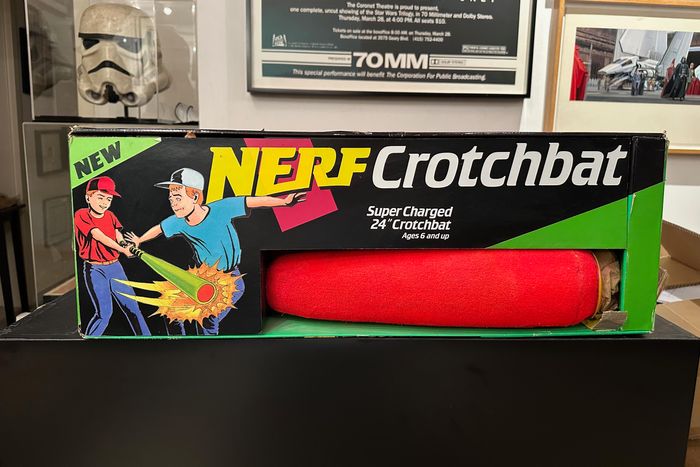
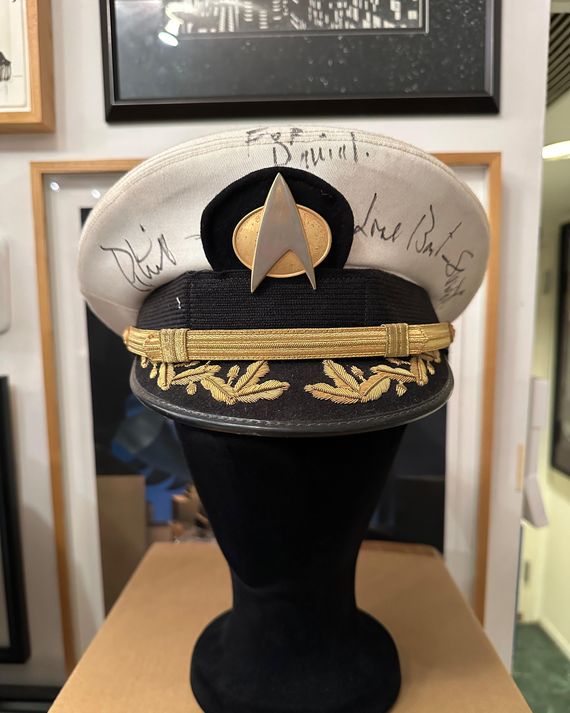
Photo: Courtesy of David Mandel.
Photo: Courtesy of David Mandel.
A “Nerf Crotchbat” from the commercial parody I wrote, and Patrick Stewart’s captain’s hat from the Love Boat–Star Trek mash-up sketch. —David Mandel
Photo: Courtesy of Robert Smigel
Michael Jordan signed NBA basketballs for people when he hosted. I cherish it so much I keep it hidden in a closet. —Robert Smigel
I have an autographed photo of a sketch I wrote with Robert De Niro dressed as a cat lady surrounded by a dozen live cats. Just to be clear, the autograph is Robert De Niro’s and not the cats’. —John Lutz
Photo: Courtesy of Sasheer Zamata
When Kristen Stewart hosted, she dropped the F-bomb during the monologue. We all thought it was really funny, and I guess she did too, because she gave everyone custom Vans with “FUCK” written on the back of the shoe. They were untouched in my closet for years, and I just started wearing them out with my wardrobe. —Sasheer Zamata
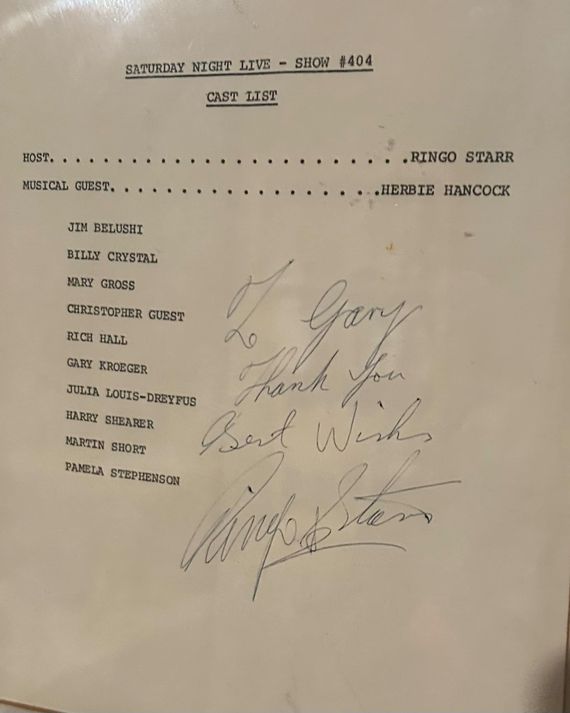
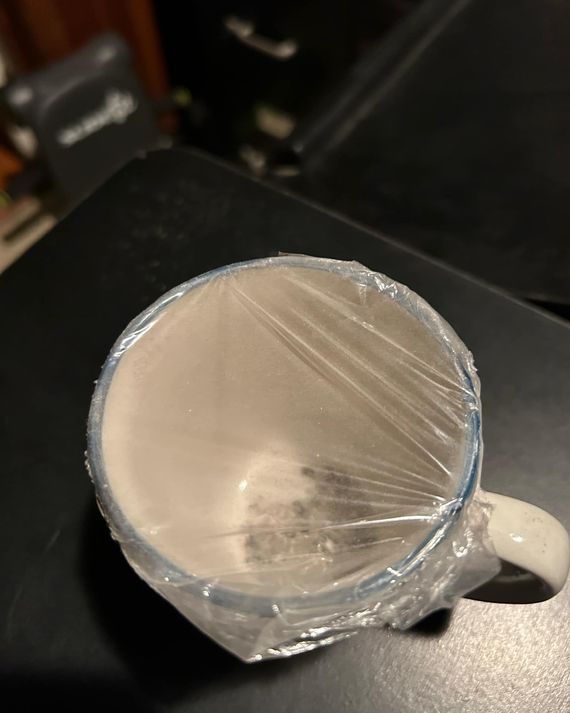
Photo: Courtesy of Gary Kroeger.
Photo: Courtesy of Gary Kroeger.
Ringo’s autograph. He came into my office to hear my ideas. He said, “No Beatles stuff,” which was unfortunate, because I’d written a wonderful homage to “A Hard Day’s Night” where he wanders off before the show. I was deflated, but when he asked if I had an ashtray, I didn’t and offered my coffee cup … where I’ve kept his ashes to this day. —Gary Kroeger
The tremendous power you have if you can remain calm, at least outwardly, when everyone else is losing their shit. —Tim Herlihy
In a high-pressure work environment, try to remember not to scream or cry. —Leo Allen
Anyone who has been on SNL has hours and hours of practice of not letting last-minute changes throw them. You trust that something will kick in, and you don’t have to know exactly how it will work, but you know it will work. —Rachel Dratch
When you’re annoyed, maybe take a breath and consider the most effective way to express it. That one only took about five years to learn. —Robert Smigel
Don’t be precious. —Taran Killam and Alex Moffat
Nothing you write is so precious that it can’t be improved. —Alan Zweibel
How to move on from career or artistic disappointments quickly. It’s a fast-moving show and it happens every week, so there’s not a lot of time to feel super sorry for yourself. —Cecily Strong
It’s easier to go with the flow instead of getting too attached to the original idea, because regardless, if it’s happening the way you dreamed, at least it’s going to be seen. It doesn’t have to be perfect; it just has to make it to air. —Sasheer Zamata
If it doesn’t work, beat it or junk it. People who work there become great creative partners because they don’t have any ego. The show beats it out of you. —Michael Schur
Pick your battles. —Amy Poehler
If you’re an assache, it doesn’t matter how good you are. Lots of people are good and pleasant. —Alex Baze
Try to work with or for non-sociopaths. —Harry Shearer
That the hours you have to be at work are directly proportional to the state of the head writer’s marriage. —Sarah Silverman
Competition and fear do not make for my best work. I got a lot better at writing once I was out of there. And then when I was in more of a leadership position at other jobs, I realized how additionally grateful I was for my years there, because it also helped me know how not to treat people. —Christine Nangle
When you’re arguing with the wardrobe department about your sketch, and the disagreement is so profound that either all of these experienced professionals are crazy or you, the 22-year-old new kid, are crazy, it’s always them. —Lew Morton
It’s showrunner training school, even though I didn’t know that at the time. The writers are the mini-producer/directors of their own pieces, and that was invaluable. —David Mandel
I didn’t know it at the time, but I was learning how to direct — or more importantly, learning that I liked it. —Julio Torres
You learn to wear all hats in production — not only how to perform, but how to write, produce, direct, makeup, hair. You don’t realize it at the time, but you gain a better understanding of all aspects of production. —Dean Edwards
Never write dogs into a script unless it’s absolutely necessary, and no goats under any circumstances. —Simon Rich
You can’t control that much — a little, but not a lot. So you have to just do your art and let fate take its course. —Julia Sweeney
Confidence. Don’t look desperate. Trust yourself. Know that the sun comes up even after the worst of days. —Gary Kroeger
Without sounding crass, it taught me to be balls-out. You don’t have time to think about it; you just go and dive headfirst. —Christine Ebersole
Trust your gut, because there’s no time. So if you think something’s funny and feels right to you, go with it and see. —Chris Kelly
Don’t be afraid to have things fail. And don’t be afraid to pitch ideas. The first year I worked there, I was so afraid to pitch jokes at the rewrite table because I thought people would figure out I wasn’t supposed to be there. As soon as I figured out that if a joke bombed, I could always pitch another one, I loosened up and started having fun. —John Lutz
Anything is possible if you are a white person. I always ask myself when confronted with a dilemma, “What would a white person do?” Then I do that. I have exposed my daughter to that mind-set; ergo, she is an oral surgeon, has an M.P.H. from Columbia University, and she is a dog owner. —Ellen Cleghorne
It should always be fun! All of it. —Abby Elliott
“Have fun out there.” Impossible advice to actualize for yourself, but the journey at the show is learning how to be yourself in front of everybody. —James Austin Johnson
Just enjoy nice moments when they’re happening. I wish I took a second to enjoy working at that place, but I was so stressed out, I never really thought, This is cool. Which it actually was. —Brooks Wheelan
Photo: Alan Singer/NBCU Photo Bank/NBCUniversal via
The Man Who Would Be King isn’t just a Rudyard Kipling novella — it’s one of the entertainment industry’s big open questions. If and when Lorne Michaels abdicates the throne (retires from SNL), who assumes the crown? Nora Dunn put it in stark terms: “I don’t think anyone can take over.” Then there’s Cecily Strong: “I don’t know that the show would still be the show without Lorne.” Harry Shearer was the most morbid: “Lorne’s undertaker.”
In a way, all three answers are the same: SNL ceases to be SNL without Lorne, in real and practical terms, as one of broadcast television’s last remaining juggernauts. “I can’t picture anyone who would be eligible to take over for Lorne being able to do that job without Lorne being there,” Anna Drezen wrote. “It would be too weird for them, as someone who has presumably worked there for a long time and got used to it being a certain way, being able to make SNL without having Lorne as the center of gravity. He’s the context we all worked within.”
But if someone does take over, the vast majority of the respondents voted for Tina Fey; Sarah Silverman, Al Franken, Rachel Dratch, Bobby Moynihan, Jim Belushi, Gary Kroeger, Jeff Richards, Jon Rudnitsky, Michaela Watkins, Kevin Kelton, Melanie Hutsell, James Anderson, Noël Wells, and Denny Dillon all suggested the former head writer and “Update” anchor. “I feel like Tina Fey’s name has been brought up a bunch when people ask this question, and I agree that seems like a smart move,” Sasheer Zamata wrote. “She knows the show inside and out, and she even made a show about this show, so I feel like she’d have the confidence and preparedness to keep the soul of SNL alive.”
Another popular name bandied about was Seth Meyers. Jorma Taccone and Alan Zweibel were among those who suggested him, along with Robert Smigel — with a caveat: “I’m not sure if anyone who’s already an on-camera star, like Seth Meyers, would want to do it.”
Speaking of Smigel, he offered another idea: “I hope Lorne goes on as long as he wants to. No one can replace him, but at some point, if you had to pick, maybe Steve Higgins? He has a great understanding of the show, and people love him.” Rob Riggle and Rachel Dratch also cited the longtime SNL producer and Tonight Show announcer, with Dratch noting that “whoever it is, it would have to be someone from the inside who did their time there already and understands how it all works.” Walter Williams and Hugh Fink nominated Conan O’Brien.
The final category is the one-offs that range from potentially plausible — Siobhan Fallon Hogan endorsed Marci Klein, while Laraine Newman recommended Robert Smigel — to the more, um, offbeat: Amy Poehler suggested Judge Judy, Julio Torres wants Miss Piggy, and David Mandel floated Vivek Ramaswamy. God save the king.
How many experts, departments, and crew members make it all happen every week, all in an incredibly short amount of time. —James Austin Johnson
Everything you see — sets, costumes, props, wigs, even puppets! — has been created that week. They are amazing at what they do. Also, between commercials, if someone was in glam makeup in one scene and now they have a bald cap on and an arm coming out of their head in those two minutes, that happened in real time! (Shout-out to Louie Zakarian, the special-effects makeup guy. Best in the biz!) —Rachel Dratch
All the wigs worn on the show are custom-made each week by the talented hair department, led by Jodi Mancuso. They thread each hair on every wig. It’s incredible. —John Milhiser
I’m always shocked when people ask what day it’s “taped.” —Taran Killam
Many other great sketch shows are compared to SNL, but anyone who has ever been to a live taping and gets to watch the chaos unfold in real time knows they’re witnessing something of a different nature, because there are no do-overs. What you see is what you get, and then it’s on to the next. —Dean Edwards
Everyone who sees it live leaves 8H thinking they just saw the best episode in years, because watching it all come together is intoxicating and mind-blowing. —Michael Schur
Sketches get cut while the live show is happening. A surefire way to get your sketch cut is to tell your parents that your sketch will be on the show that night. —John Lutz
No one writes for you specifically. It’s everyone out for themself. —Victoria Jackson
People treat SNL like it’s a football game, ranking people and quantifying their appearances, but from what I saw, everyone who is there is probably the best in the world in some way, and there are so many moving parts, it really isn’t one-to-one like that. Some of the funniest sketches at the table reads don’t make it to air for one reason or another, and some of the most talented people don’t get to show off what they can do. —Noël Wells
You have to audition for your job every episode. You’re truly only as good as your last work. —Jay Pharoah
Many times, people have said, “Well, you only work one day a week.” Misinformation. Even if your sketches don’t make air, you work seven days. I say “seven days,” because the show starts at 11 p.m. Saturday, and you don’t leave the studio until early Sunday morning. That’s seven days, and you tape two shows on Saturday. —Ellen Cleghorne
I think people assume the show is one big party — that everyone is just joking around, and sketches just appear out of thin air. But it’s also a job, and there are really long nights and hours of work that need to happen to make the show seem effortless. —Sasheer Zamata
You don’t sleep — either because of the schedule, or because it’s so stimulating you can’t just go night-night. —Michaela Watkins
For the rest of your life, you’ll have stress dreams about it. The same is true for waitressing. —Christine Nangle
Nobody does cocaine anymore. —Jon Rudnitsky
Edited from responses by, in order: Sasheer Zamata, Julio Torres, Kevin Kelton, Alex Baze, Tim Herlihy, Anna Drezen, John Lutz, Dean Edwards, Nasim Pedrad, Finesse Mitchell, Brooks Wheelan, Noël Wells, Jorma Taccone, Bobby Moynihan, Mitchell Kriegman, Michaela Watkins, Alex Moffat, Jim Belushi, Paul Shaffer, John Milhiser, Laraine Newman, Rachel Dratch, Robert Smigel, Melanie Hutsell, Leo Allen, Jay Pharoah, Michael Schur, Chris Kelly, and David Mandel.
SNL’s legacy is the keen ability to honor, critique, or analyze cultural events in thought-provoking ways. There are times when something so massive happens in the news that people look to certain institutions to help them understand it. People use the word “institution” a lot, but it’s accurate. It’s an institution like … the Super Bowl or one of the branches of government.
It revolutionized TV sketch comedy, and that revolutionized the medium. It created, nourished, and educated several generations of comedians and writers and made them into screenwriters, filmmakers, and producers that now color every corner of the industry. Showbiz would turn gray if you pulled out everybody who learned from SNL. Comedy is this huge, amorphous, unpredictable, uncontrollable thing, and there’s an SNL connection to at least half of it.
It’s nice that even now, 50 years later, when most TV is very slick and manicured, this show that is inherently a big mess gets to go on TV every week. It’s something that goes out internationally and yet still kind of runs like a high-school play — very DIY. Some guys with markers in a corner write words on card stock, and then they go out into the dark and hold them up, and a famous person says them. It’s really refreshing.
It’s mostly funny. It’s enduringly funny. It’s unpredictable. It’s iconic. It’s complicated. It’s late-stage comedy. It’s bottled chaos, pure joy, current, brave, inspirational, frustrating, and panic-attack-inducing. It’s still pretty fucking cool. It’s as brilliant, hopeful, original, and flawed as America, especially in that it was started and run by Canadians. It’s an American staple.
There’s no other show like it. It’s changed the face of comedy. It changed everything. It gave and continues to give comedic performers a visible, tangible dream to achieve. It always pushed the needle forward in American comedy. It never tried to anticipate what the audience wanted; it simply gave voice and time to a continuous list of actors and writers who were unique and original. It affects how we view politics and gives us a way of processing politicians in a way that is … healing?
Comedy aside, it reflects Lorne Michaels’s love for the first golden age of television, when lots of shows went on live. The innocence, romance, and excitement of throwing a show together in a week, putting it out there, and seeing what happens — we still yearn for it. It’s real showbiz! Michaels and the original cast created a place where someone could be plucked from obscurity and have the opportunity to make people laugh on a grander scale than they ever imagined could happen — a place that highlights a cross section of seasoned talent and newbies in each and every show, and it just works.
No one person will ever keep a show going for 50 years in a row ever again — especially a live show. It’s a special piece of pop culture that everyone dreams to either host or be on — and if you’re that good, both! It’s the greatest and most important late-night show in the history of entertainment. It’s the greatest television show of all time — after The Leftovers.
